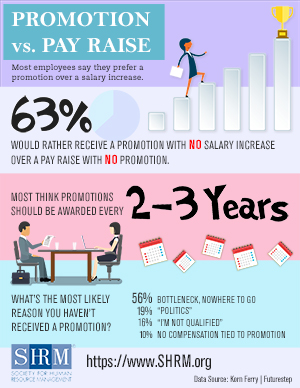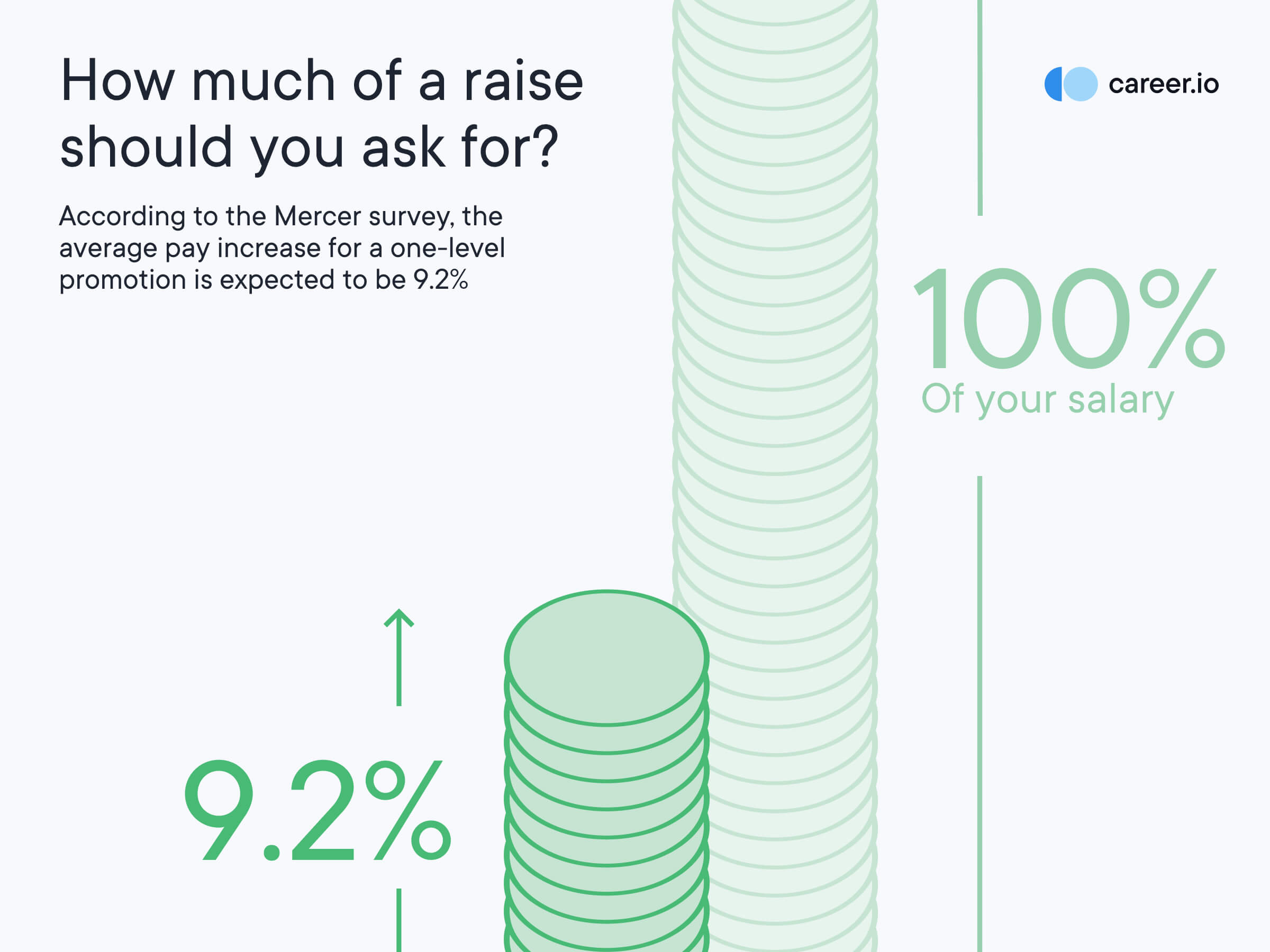- Understanding the Marketing Coordinator Salary After Your First Promotion
- How much of a salary increase should I expect with a promotion?
- What is the top salary of a marketing coordinator?
- Is a 20% raise for a promotion reasonable?
-
What is the salary of marketing team coordinator?
- What Factors Influence the Salary of a Marketing Team Coordinator?
- What is the Average Salary Range for a Marketing Team Coordinator?
- How Does Experience Impact a Marketing Team Coordinator's Salary?
- What Are the Additional Benefits for a Marketing Team Coordinator?
- How Does Location Affect a Marketing Team Coordinator's Salary?
- Frequently Asked Questions from Our Community
Landing your first promotion is an exciting milestone, especially in a dynamic field like marketing. As a newly promoted Marketing Coordinator, you’re likely eager to understand what your salary should reflect in terms of experience, responsibilities, and industry standards. Compensation can vary widely depending on factors such as location, company size, and specific job duties. This article delves into the typical salary range for Marketing Coordinators, explores the skills and qualifications that influence earnings, and provides insights to help you navigate salary negotiations. Whether you’re just starting or aiming to grow further, understanding your worth is key to building a successful career in marketing.
Understanding the Marketing Coordinator Salary After Your First Promotion
What Factors Influence a Marketing Coordinator's Salary?
The salary of a Marketing Coordinator can vary based on several factors, including geographic location, industry, company size, and level of experience. For instance, coordinators in metropolitan areas often earn more due to the higher cost of living. Additionally, industries like technology and finance typically offer higher salaries compared to non-profits or education sectors.
See Also “What are your salary expectations?” How to answer this question
“What are your salary expectations?” How to answer this questionAverage Salary Range for a Marketing Coordinator
The average salary for a Marketing Coordinator in the United States typically ranges between $40,000 and $60,000 annually. Entry-level positions might start closer to the lower end, while those with more experience or in high-demand areas can expect salaries at the higher end or even beyond.
How Does Experience Affect Your Salary?
Experience plays a significant role in determining a Marketing Coordinator's salary. Those just starting out might earn closer to $40,000, but with a few years of experience, this can increase to $50,000 or more. Specialized skills, such as proficiency in digital marketing tools or analytics, can further boost earning potential.
See Also What Is a Typical Starting Salary Range Out of a Marketing Bachelor's Program?
What Is a Typical Starting Salary Range Out of a Marketing Bachelor's Program?Benefits and Perks Beyond the Base Salary
In addition to the base salary, many companies offer benefits and perks that can significantly enhance the overall compensation package. These may include health insurance, retirement plans, bonuses, paid time off, and opportunities for professional development.
How to Negotiate Your Salary as a Marketing Coordinator
When negotiating your salary, it's important to be prepared. Research the market rate for your role in your area, and be ready to discuss your achievements and skills that justify a higher salary. Practice your negotiation skills and be clear about your expectations, but also be willing to listen and compromise.
See Also Looking for a career coach? Any recommendations?
Looking for a career coach? Any recommendations?| Factor | Impact on Salary |
|---|---|
| Geographic Location | Higher in metropolitan areas |
| Industry | Technology and finance pay more |
| Experience | More experience leads to higher pay |
| Skills | Specialized skills can increase salary |
| Company Size | Larger companies may offer higher salaries |
How much of a salary increase should I expect with a promotion?

Factors Influencing Salary Increase with a Promotion
When considering a salary increase with a promotion, several factors come into play. These include:
- Industry Standards: Different industries have varying norms for salary increases. Researching industry benchmarks can provide a realistic expectation.
- Company Policy: Some companies have fixed policies regarding salary increments for promotions, often ranging between 5% to 20%.
- Job Role and Responsibilities: The complexity and scope of the new role significantly impact the salary increase. Higher responsibilities usually command higher pay.
- Geographical Location: Salaries can vary based on the cost of living in different regions. Urban areas might offer higher increments compared to rural areas.
- Performance and Experience: Your past performance and experience within the company can also influence the salary hike. Exceptional performers might receive higher increments.
Typical Salary Increase Percentages
Understanding the typical salary increase percentages can help set realistic expectations:
- Entry-Level Positions: Promotions in entry-level roles often come with a 5% to 10% salary increase.
- Mid-Level Positions: For mid-level roles, the increase can range from 10% to 15%.
- Senior-Level Positions: Senior roles might see a 15% to 20% increase, reflecting the higher responsibilities.
- Executive Positions: Promotions to executive levels can command increases of 20% or more, depending on the company and industry.
- Specialized Roles: Roles requiring specialized skills or certifications might offer higher increments, sometimes exceeding 25%.
Negotiating Your Salary Increase
Negotiating a salary increase during a promotion is crucial. Here are some steps to consider:
- Research Market Rates: Understand the market rate for your new position to have a solid foundation for negotiation.
- Highlight Achievements: Emphasize your contributions and achievements that justify a higher salary.
- Be Prepared to Justify: Have a clear rationale for the requested increase, linking it to your new responsibilities and market standards.
- Consider Non-Monetary Benefits: If the salary increase is limited, negotiate for other benefits like bonuses, stock options, or additional vacation days.
- Stay Professional: Maintain a professional demeanor throughout the negotiation process to foster a positive outcome.
Impact of Company Size on Salary Increases
The size of the company can significantly influence the salary increase you might expect with a promotion:
- Large Corporations: Larger companies often have structured pay scales and may offer standardized increases, typically between 10% to 15%.
- Small to Medium Enterprises (SMEs): SMEs might offer more flexible increases, sometimes higher, to retain talent, but this can vary widely.
- Startups: Startups may offer lower base salary increases but compensate with equity or other incentives.
- Non-Profit Organizations: Non-profits might have limited budgets, resulting in smaller salary increases, often around 5% to 10%.
- Government and Public Sector: These sectors usually have fixed increments, often tied to years of service and predefined scales.
Long-Term Financial Planning with Salary Increases
Planning for the long-term financial impact of a salary increase is essential:
- Budget Adjustments: Adjust your budget to accommodate the new salary, ensuring you allocate funds wisely.
- Savings and Investments: Consider increasing your savings and investment contributions to build wealth over time.
- Debt Management: Use the additional income to pay down debts faster, improving your financial health.
- Retirement Planning: Enhance your retirement savings to secure your future financial stability.
- Lifestyle Changes: Be mindful of lifestyle inflation; avoid unnecessary expenditures that could offset the benefits of the salary increase.
What is the top salary of a marketing coordinator?

The top salary of a marketing coordinator can vary significantly depending on factors such as location, industry, experience, and company size. On average, in the United States, a marketing coordinator can earn between $40,000 and $70,000 annually. However, in high-demand areas or industries, top earners can make upwards of $80,000 to $90,000 per year. Senior-level marketing coordinators or those working in competitive markets like New York or San Francisco may even exceed $100,000 annually.
Factors Influencing the Top Salary of a Marketing Coordinator
Several factors can influence the top salary of a marketing coordinator:
- Location: Salaries tend to be higher in metropolitan areas with a higher cost of living.
- Industry: Sectors like technology, finance, and healthcare often offer higher compensation.
- Experience: Years of experience and proven results can significantly boost earning potential.
- Company Size: Larger companies typically have bigger budgets for marketing roles.
- Certifications: Additional qualifications, such as digital marketing certifications, can increase salary prospects.
How Location Affects Marketing Coordinator Salaries
Location plays a crucial role in determining the top salary for a marketing coordinator:
- Urban Areas: Cities like New York, San Francisco, and Los Angeles offer higher salaries due to increased demand and cost of living.
- Rural Areas: Salaries are generally lower in smaller towns or rural regions.
- International Markets: Salaries can vary widely in different countries, with some offering competitive pay for skilled professionals.
The Role of Industry in Determining Salary
The industry in which a marketing coordinator works can greatly impact their earning potential:
- Technology: Tech companies often pay higher salaries due to their competitive nature.
- Healthcare: Marketing roles in healthcare can offer lucrative compensation, especially in specialized fields.
- Retail: While retail may offer lower salaries, large corporations can provide competitive pay.
Experience and Its Impact on Salary
Experience is a key factor in determining the top salary for a marketing coordinator:
- Entry-Level: Beginners typically earn closer to the lower end of the salary range.
- Mid-Level: Professionals with 3-5 years of experience can expect a significant salary increase.
- Senior-Level: Those with over 5 years of experience or specialized skills can command top-tier salaries.
How Certifications Can Boost Earnings
Certifications can enhance a marketing coordinator's earning potential:
- Digital Marketing Certifications: Platforms like Google Ads or HubSpot can validate expertise and increase salary offers.
- Project Management Certifications: Skills in project management can make candidates more valuable to employers.
- Industry-Specific Certifications: Specialized knowledge in areas like SEO or data analytics can lead to higher pay.
Is a 20% raise for a promotion reasonable?

What Factors Determine if a 20% Raise is Reasonable?
Several factors influence whether a 20% raise for a promotion is reasonable. These include:
- Industry Standards: Research the typical salary increases for promotions in your industry. Some sectors, like tech or finance, may offer higher raises compared to others.
- Job Responsibilities: Assess the new role's demands. A significant increase in workload, leadership duties, or specialized skills may justify a 20% raise.
- Company Performance: Consider the financial health of your organization. Profitable companies are more likely to offer higher raises.
- Geographic Location: Salaries and raises vary by region due to cost of living differences. A 20% raise might be standard in high-cost areas.
- Your Performance: Your contributions and achievements in your current role can strengthen your case for a substantial raise.
How Does a 20% Raise Compare to Market Averages?
Comparing a 20% raise to market averages can help determine its reasonableness. Consider the following:
- National and Local Data: Use salary surveys or platforms like Glassdoor to compare your raise to regional and national averages.
- Role-Specific Benchmarks: Research what professionals in similar roles earn after promotions. A 20% raise may align with or exceed these benchmarks.
- Company History: Review past promotions within your organization to understand typical raise percentages.
What Are the Benefits of a 20% Raise for Employers?
A 20% raise can benefit employers in several ways:
- Employee Retention: Competitive raises reduce turnover by rewarding loyalty and performance.
- Increased Motivation: Employees are more likely to excel in their new roles when financially recognized.
- Enhanced Reputation: Offering fair raises improves the company’s reputation as an employer of choice.
What Are the Potential Downsides of a 20% Raise?
While a 20% raise can be appealing, it may have downsides:
- Budget Constraints: Smaller companies or those with tight budgets may struggle to accommodate large raises.
- Expectation Setting: A high raise may set unrealistic expectations for future promotions or salary adjustments.
- Internal Equity: Colleagues in similar roles may feel undervalued if their raises are significantly lower.
How to Negotiate a 20% Raise for a Promotion?
Negotiating a 20% raise requires preparation and strategy:
- Gather Evidence: Document your achievements, skills, and the value you bring to the organization.
- Research Market Rates: Use data to justify your request and demonstrate its alignment with industry standards.
- Practice Your Pitch: Clearly articulate why you deserve the raise and how it benefits the company.
- Be Flexible: If a 20% raise isn’t feasible, consider negotiating for additional benefits like bonuses or professional development opportunities.
What is the salary of marketing team coordinator?

What Factors Influence the Salary of a Marketing Team Coordinator?
The salary of a marketing team coordinator can vary significantly based on several factors. These include:
- Geographic location: Salaries tend to be higher in metropolitan areas compared to rural regions.
- Industry: Certain industries, such as technology or finance, may offer higher compensation.
- Experience level: Entry-level coordinators earn less than those with several years of experience.
- Company size: Larger companies often provide higher salaries and additional benefits.
- Educational background: Advanced degrees or certifications can lead to higher pay.
What is the Average Salary Range for a Marketing Team Coordinator?
The average salary for a marketing team coordinator typically ranges between $40,000 and $60,000 annually in the United States. However, this can vary depending on:
- Location: For example, coordinators in New York or San Francisco may earn closer to $70,000.
- Experience: Entry-level roles may start around $35,000, while senior coordinators can earn up to $75,000.
- Benefits: Some companies offer bonuses, profit-sharing, or additional perks that increase total compensation.
How Does Experience Impact a Marketing Team Coordinator's Salary?
Experience plays a significant role in determining a marketing team coordinator's salary. Here’s how:
- Entry-level: Typically earns between $35,000 and $45,000 annually.
- Mid-level: With 3-5 years of experience, salaries range from $45,000 to $55,000.
- Senior-level: Those with over 5 years of experience can earn $55,000 to $75,000 or more.
What Are the Additional Benefits for a Marketing Team Coordinator?
Beyond the base salary, a marketing team coordinator may receive additional benefits, such as:
- Health insurance: Many companies offer comprehensive medical, dental, and vision plans.
- Retirement plans: Contributions to 401(k) or similar retirement savings plans.
- Bonuses: Performance-based incentives or annual bonuses.
- Professional development: Opportunities for training, certifications, or conferences.
- Flexible work arrangements: Remote work options or flexible hours.
How Does Location Affect a Marketing Team Coordinator's Salary?
The location of the job significantly impacts the salary of a marketing team coordinator. For example:
- High-cost cities: In cities like New York or San Francisco, salaries can exceed $70,000 due to higher living costs.
- Mid-sized cities: In areas like Austin or Denver, salaries range between $50,000 and $60,000.
- Rural areas: Salaries may be closer to $40,000 in less expensive regions.
Frequently Asked Questions from Our Community
What is the average salary for a Marketing Coordinator?
The average salary for a Marketing Coordinator typically ranges between $40,000 and $60,000 per year, depending on factors such as location, industry, and level of experience. In major metropolitan areas or competitive industries, salaries may lean toward the higher end of this range. Entry-level positions might start closer to $40,000, while those with more experience or specialized skills could earn closer to $60,000 or more.
What factors influence a Marketing Coordinator's salary?
Several factors can influence a Marketing Coordinator's salary, including geographic location, industry, company size, and years of experience. For example, working in a high-cost-of-living city like New York or San Francisco often results in higher compensation. Additionally, industries such as technology or finance may offer more competitive salaries compared to non-profits or smaller businesses. Advanced skills in digital marketing, data analysis, or project management can also boost earning potential.
How does a promotion impact a Marketing Coordinator's salary?
A promotion to a Marketing Coordinator role often comes with a salary increase, typically ranging from 5% to 15% of your previous salary. The exact amount depends on your company's policies, your performance, and the responsibilities of the new role. For example, if you were previously earning $45,000 as an assistant, you might now earn between $47,250 and $51,750 as a Coordinator. Additionally, promotions may include other benefits like bonuses, additional vacation days, or professional development opportunities.
What skills can help a Marketing Coordinator earn a higher salary?
To maximize your earning potential as a Marketing Coordinator, focus on developing in-demand skills such as digital marketing, SEO/SEM, content creation, and data analytics. Proficiency in tools like Google Analytics, CRM software, and social media platforms can also make you more valuable to employers. Additionally, strong communication, project management, and leadership skills are highly sought after and can justify a higher salary or faster career advancement.
Leave a Reply


Articles of interest